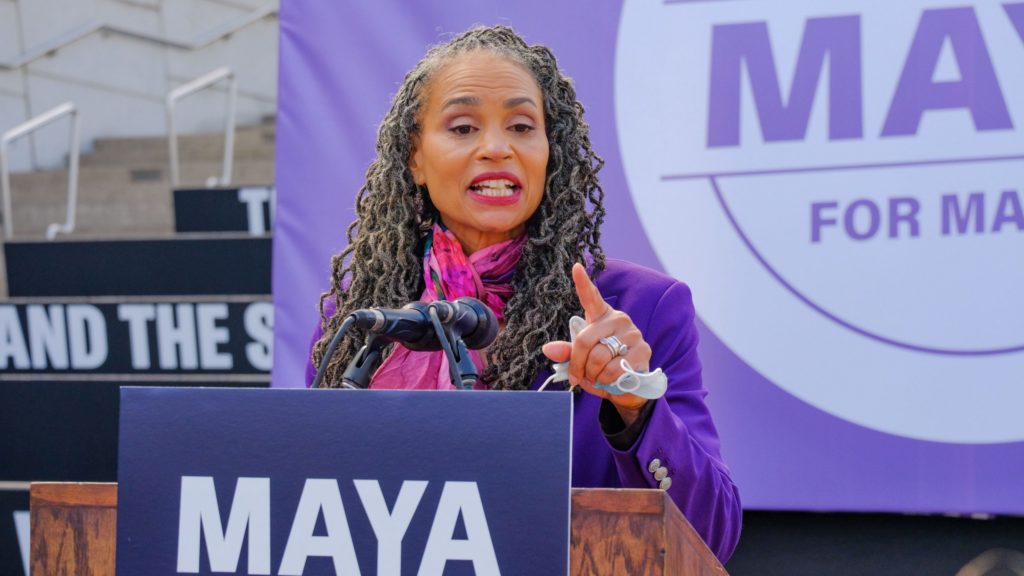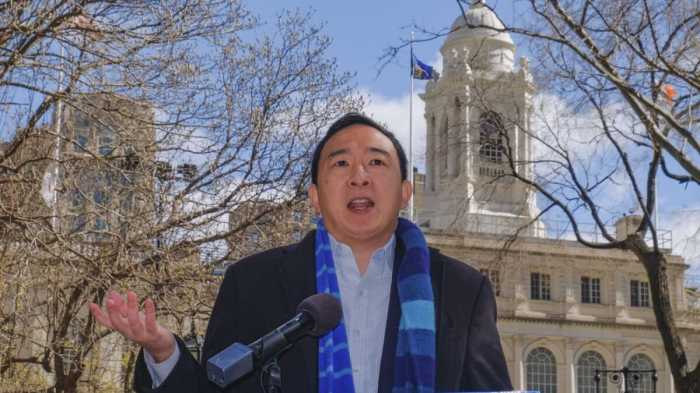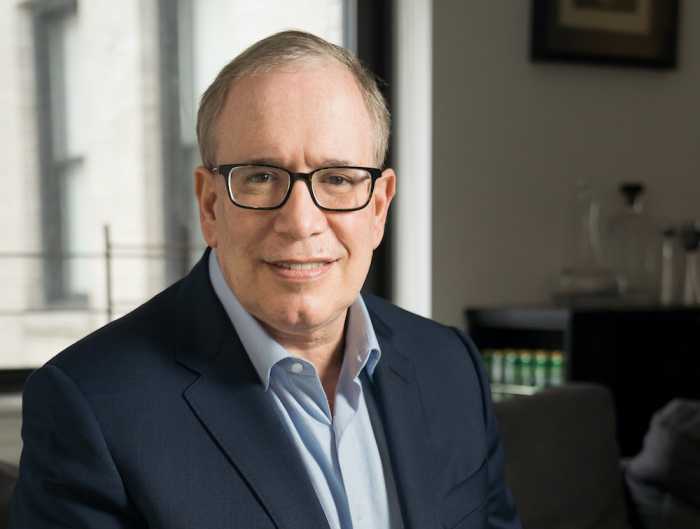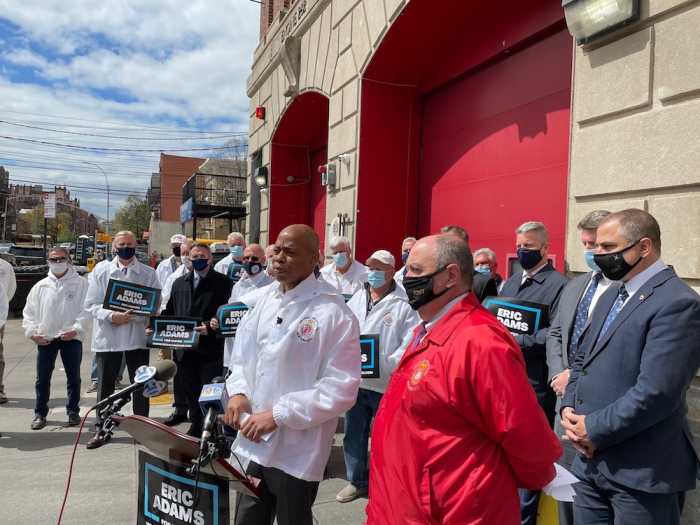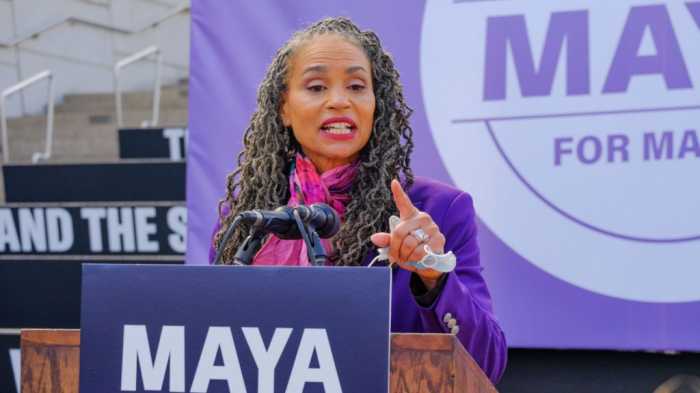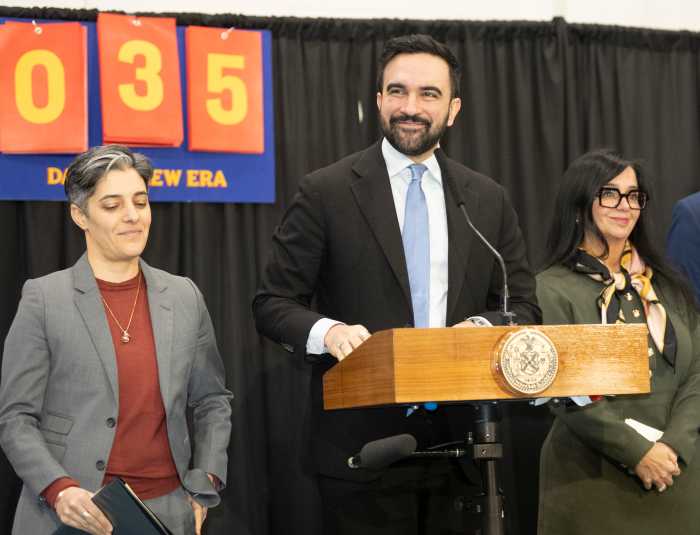Progressive mayoral Candidate Maya Wiley on Monday defended Ranked Choice Voting (RCV) while blasting supporters of frontrunning moderate candidate Eric Adams for alleging the city’s new voting system could serve to disenfranchise the city’s Black and Hispanic voters.
Wiley’s remarks come in response to Adams and his supporters criticizing the strategic alliance made this past weekend between moderate mayoral candidates Kathryn Garcia and Andrew Yang, in which they campaigned together in Flushing, Queens on June 19 — which also happened to be Juneteenth, the newly named federal holiday commemorating the last freed slaves following the Civil War.
“New York City is emerging from our crisis and is excited to vote for the Mayor who will see us through to a better future. Already, tens of thousands of New Yorkers have voted, and many thousands more will vote tomorrow. And at a time when this country is seeing real voter suppression laws being enacted, using racism charges to undermine confidence in Ranked Choice Voting is cynical, self-interested and dangerous,” said Wiley.
“Ranked Choice Voting protects the voice of Black and brown voters. Studies have shown that Ranked Choice Voting has a positive impact on candidates and voters of color. Here in New York City, Ranked Choice Voting will prevent a run-off election, which would see significant voter drop off, especially in communities of color,” she added.
Under the RCV system, each voter gets to select up to five candidates in order of preference. If no candidate secures a majority of votes on the first ballot, the ballots are recounted in individual rounds — with the candidate with the least support in each round eliminated.
Voters who had their first candidate eliminated would then have their second-choice votes counted toward the candidate of their choice. This system of counting and eliminations goes on until one candidate has achieved a majority of votes.
In past mayoral primaries, if no candidate received at least 50 percent of the votes, the top two candidates would have a runoff to decide who wins the election.
Wiley said Garcia and Yang have made a decision and it is not a decision she would have made.
“However, this partnership is not racist and we should not be using this term so loosely against other candidates at the end of a long campaign when New Yorkers are all coming together to make important choices about our collective future. These accusations are a weaponization of real fears and concerns about our democracy, and have no place here,” she said..
Wiley said it was off-base to compare RCV in any way to the long history of voter suppression of Blacks in this country.
“Today, we are still seeing all-out racist attacks on voting. States have already enacted more than 20 laws this year designed to make it harder to vote – with more on the way. This is voter suppression. These are laws designed to prevent Black and brown people and others from voting, which is why the work of people like my father is never going to be complete,” said Wiley.
Wiley’s comments in part were a response to former Governor David Paterson and Bronx Borough President Ruben Diaz Jr. – both Adams supporters, who feel RCV could, in theory, suppress the Black and Hispanic vote, especially as polls show these two groups support Adams.


